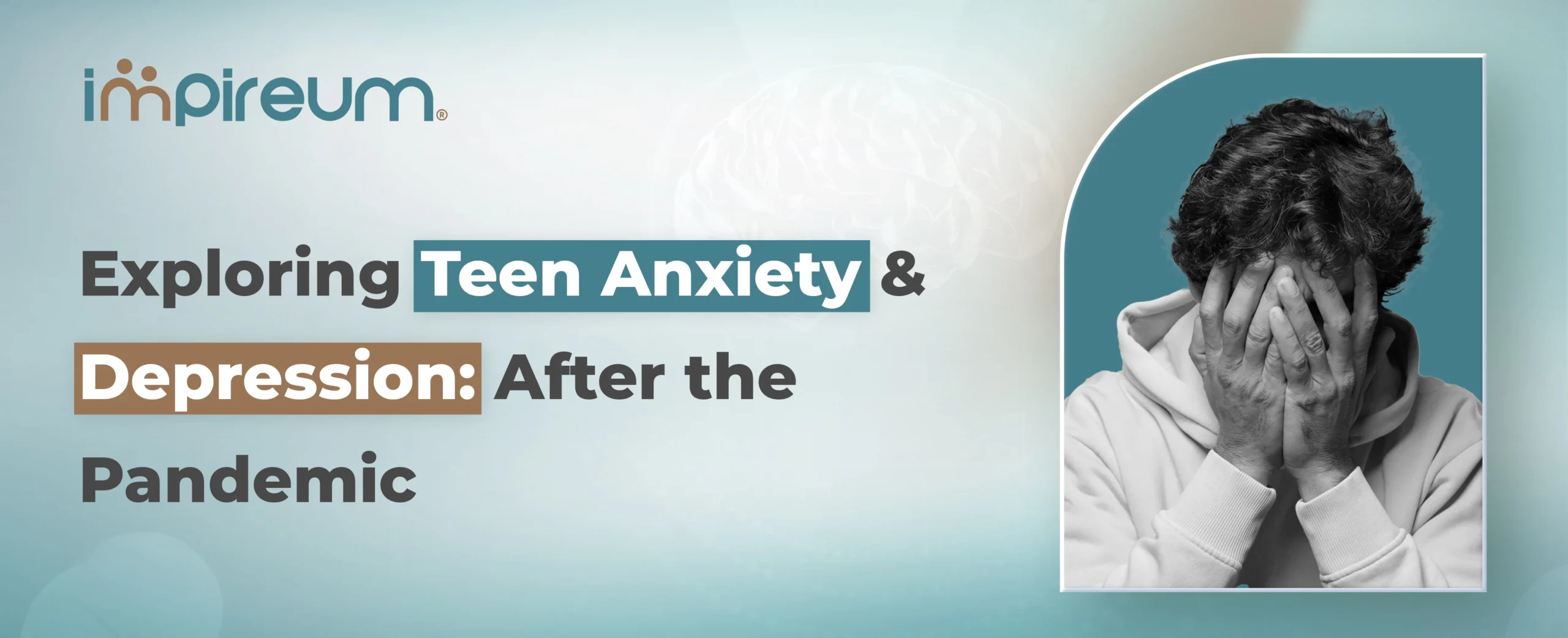In today’s fast-paced world, the mental health of our youth is more critical than ever. Adolescents are facing a host of challenges, from academic pressures to social media influence. Unfortunately, these issues have led to alarming rates of teen anxiety and depression. Today, we’re delving into the critical state of teen mental health in the U.S. In addition, we’ll explore how this state has been exacerbated by the pandemic. We’ll also explore which Impireum strategies work best in supporting our youth effectively.
According to the National Institute of Mental Health (NIMH), approximately 31.9% of adolescents aged 13-18 will experience an anxiety disorder, while 14.8% will battle with depression at some point. These figures highlight a concerning U.S. trend in youth mental health, indicating a pressing need for intervention and support.
Between 2021 and 2022, nearly 1 out of 5 teens stated they had experienced what they believed to be depression or anxiety. Yet, even more unfortunate, many report not receiving treatment or obtaining the support they need.
Lastly, young ladies are 2.5 times more likely to report that they’ve experienced teen anxiety [3:1] or depression [2:1], compared to young men.1
The constant pursuit of perfection and fear of rejection and failure also contribute to feelings of inadequacy and heightened anxiety levels.
Additionally, the stigma surrounding mental health can often prevent adolescents from seeking the help they need. As a result, their struggles begin to exacerbate over time.
Impireum strives to remove the stigma that teens may associate with getting mental health services. People today need an inviting and friendly treatment environment that helps them feel like they’re in a safe space to address their concerns.
At Impireum, we’re not about incorporating the latest trends when it comes to treating adolescents who deal with mental health issues because there is no “one size fits all” for treating anxiety and depression. Instead, we’re about cultivating behavioral and emotional wellness and providing turn-key solutions that help unlock potential and set people back on course with life.
We believe to combat the rising tide of adolescent anxiety and depression, taking a holistic approach and exploring which solutions work best for each individual is what’s vital. For example, since the pandemic, psychotherapy services via teletherapy have gained popularity as a convenient and accessible option for teens to receive mental health support from the comfort of their homes. This option not only removes stigma but also helps young people feel more relaxed and less inhibited when they’re seeking treatment.
In addition, schools and community centers are implementing mindfulness programs and peer support groups to foster emotional resilience, offer information and professional referral services, and provide a safe space for expression. Many of these centers also collaborate with local and city mental health professionals and facilities to bring services directly to communities for low-cost or free programs.
Parents, caregivers, schools, hospitals, and community centers play pivotal roles in identifying and addressing teen mental health concerns. Establishing open lines of communication and removing the stigma of mental illness are crucial first steps. Parents and caregivers should learn the signs of anxiety and depression and encourage their teens to seek professional help when needed.
Likewise, schools4 and community centers that have facility counselors and therapists can provide the initial resources for mental health education. And, similar to hospitals and clinics, some may be able to help facilitate referrals for psychotherapy and psychiatric care services.
The mental health of adolescents is a complex issue that requires a multifaceted approach. By raising awareness, implementing strategic solutions, and fostering a supportive environment, we can empower teens and youth to navigate their mental health challenges and thrive in today’s world.
At Impireum, we’re here to work together with families and individuals to ensure every teen receives the support and care they deserve. So, get to know us today! Call (877) 631-0010 for immediate assistance, or connect with us online.



